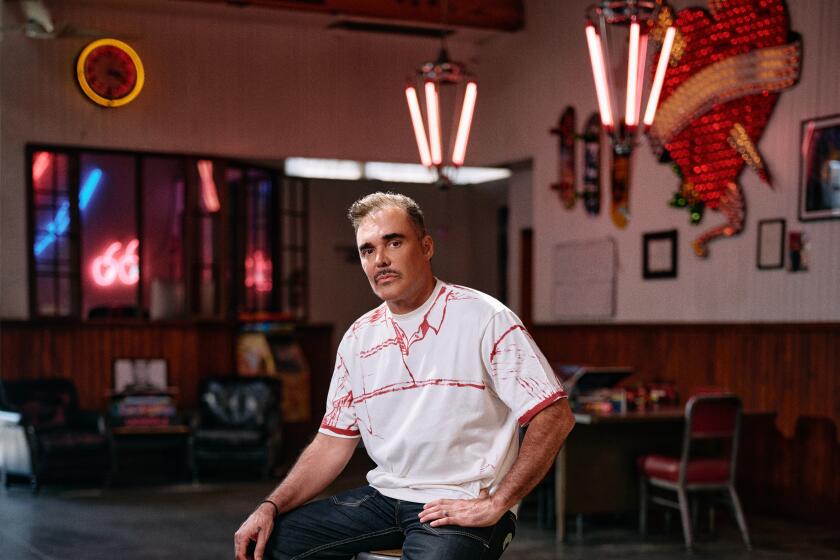One Step Away From Fanaticism : NO OTHER LIFE, <i> By Brian Moore (Doubleday/Nan A. Talese: $21; 223 pp.)</i>
“Only one step separates fanaticism from barbarism.” In his new and disturbing novel Brian Moore quotes this line of Diderot and later, to underline its importance, he repeats the quotation. In fact, the pensee does illuminate a large part of the story, but--as the story further reminds--there is also only one step between saintly devotion and destructive fanaticism; and “No Other Life” is concerned also with the ambiguities of the whole process. How does a bright boy on a backward island, rescued from the endemic grinding poverty, succeed in becoming first a brilliant priest, then a potent political leader, then a quasi-dictator and--finally--a legend? Through a first-person narrator--at times the varied narrative strands observer, at other times participant--Moore interweaves into a glowing fabric of changing colors. Public life alternates with the profoundly private, secular with religious past with present and black with white.
Moore gives his Caribbean island the name Ganae. Readers of Graham Greene’s novel “The Comedians” or Ian Thomson’s remarkable autobiographical travel book “Bonjour Blanc” will probably identify Moore’s setting with Haiti, though the corrupt political life, the Papa-Doc figure, the Tontone Macoute, the disease and unemployment and hunger could belong to other Third World areas. As in Haiti, race is the fundament of Ganae’s society: the narrator is white, an elderly French-Canadian priest; the young protagonist is black; the antagonists are largely mix-ancestry, light-skinned aristocrats, members of the powerful caste who run the country, control the army and the church (and in some cases, also traffic in drugs, accumulating immense fortunes.)
The real political struggle in Ganae--as in Haiti--has traditionally been between the Creole-speaking blacks, exploited, deliberately kept uneducated, underpaid, underfed, and the French-speaking mulattoes, who shop in Paris, send their sons in the College St. Jean, the one local institution where boys can learn something, and, from there, go on to the Sorbonne or Oxford or Princeton. At the opening of the book, Father Paul Michel is retiring as headmaster and leaving the island where he has spent most of his adult life. Before going away, he decides to write down the account of the central experience of his years in Ganae.
Not long after Father Michel’s arrival there, in a characteristic political upset, a young black country dentist was elected president, encouraged by the army, who assumed he would become their puppet. Instead, he becomes their terror. In his public speeches, he promises advantages for the black populace but they are soon his victims as much as their mixed-race enemies. As a token gesture, however, the prestigious College St. Jean decides to admit a few more blacks, to indicate goodwill to the dictator, who has been fulminating against elitist education. The newcomer, Father Michel is soon sent out to round up a few promising black students. “The following day I rode on mule back over a road never traveled by motor vehicles, up to a mud-walled mountain shack on land denuded by 300 years of ignorant and relentless agriculture.” There he meets a woman, as worn and wasted as the land around her; a widow, she is raising four of her own children as well as two orphaned nephews. It is one of these, Jean-Paul Cantave, “Jeannot,” who takes over the book and Father Michel’s life. His aunt “gave him into my care as casually as she would give away a puppy from a litter.”
Father Michel’s account is for the most part, unemotional, even laconic. Naturally, this tone only heightens the drama, as the Canadian priest attempts through all the conflicts and violence, to maintain his detachment and, at the same time, his loyalties.
The boy Jeannot quickly elects Father Michel his role-model and determines to become a priest. Michel’s mild do-good attitude, however, quickly becomes an overpowering social commitment in the boy. And when after an absence abroad, Pere Cantave returns to Ganae and is assigned to a poor parish where he quickly and compellingly voices his indignation, the disinherited rally behind him not just because he is outspoken in their defense, but also because they believe he is a saint or, indeed, God. Jeannot ce Messiah-- Jeannot is the Messiah--becomes a popular cry.
If this Messianic role disturbs Jeannot’s old mentor, it creates genuine alarm in religious circles (the higher prelates of Ganae are all the dictator’s appointees). The young priest is not defrocked, but he is removed from his parish--after thugs have burned the church--and forbidden to say Mass. For a dedicated priest, this is a terrible punishment, and the author sensitively conveys Jeannot’s suffering. At the same time the youth continues his active fight against injustice and--on the death of the dictator--Jeannot is elected president, supported by the opposition parties. The wicked generals flee to Paris; the humble priest--and some of the less transparent advisers he has now attracted--are installed in the incongruous kitsch presidential mansion.
On short notice, Michel has to fly to Canada, to his mother’s deathbed. For a moment, the reader might think this is digression, but in a surprising and delicate, deftly-drawn scene with the dying woman, questions are raised which color the rest of the story from Canada, and Michel is summoned to the Vatican, where the political implications of Jeannot’s case are subtly debated. Here Moore shows a grasp of ecclesiastical policies as firm as his control of Caribbean plots and country-plots.
“No Other Life” is not a political novel, nor is it an abstract debate without power, corruption and sanctity. For much of its course it reads like a superior thriller. There are massive crowd scenes worthy of Greene himself, and there is a hair-raising chase sequence that allows Moore in a page, or even in a paragraph, to introduce and define minor characters, whose responses to Jeannot’s request for help contribute to the moral debate while maintaining the taut suspense.
Moore is a fertile writer of wide-ranging interests; but no matter how varied in subject and setting, his books all reflect an enduring concern with questions of morality, responsibility, and, always, he knows how to create characters--priests and lay--in convincing situations of trial and achievement.
More to Read
Sign up for our Book Club newsletter
Get the latest news, events and more from the Los Angeles Times Book Club, and help us get L.A. reading and talking.
You may occasionally receive promotional content from the Los Angeles Times.









